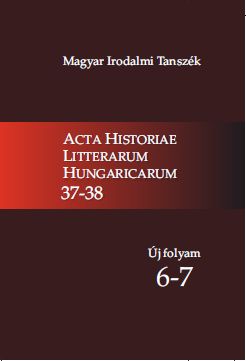The Background of the Hungarian Translations of The Fisher Maiden by Bjørnstjerne Bjørnson
Main Article Content
Abstract
The Fisher Maiden, a short story by Norwegian author Bjørnstjerne Bjørnson gained world‐wide success and got translated into many languages, Hungarian among them, after its publication in 1868. The work and its reception had a serious impact on Bjørnson’s portrayal in Hungary. In Hungary, the paper Magyarország és a Nagyvilág published the translation in 1869 which was based on a German edition, then it appeared again in Divat‐Nefelejts in 1876. My paper examines the approach in which the short story is treated within the Hungarian literary discourse. Due to the authorʹs world‐wide reputation based on his earlier narrative works and to the effects of linguistic transmission, The Fisher Maiden is considered to be a typical Norwegian peasant story, however, compared to the writer’s earlier works it is rather atypical. The protagonist is not a peasant girl, and her actions are motivated by her aspiration to become an actress. The duality of the Hungarian reception is that Bjørnson is introduced to the Hungarian literary scene as the author of peasant stories, while his first voluminous work translated to Hungarian, The Fisher Maiden does not fall into that stereotype. The overall image of Bjørnson writing Norwegian peasant stories obscures for a long time the aspect that The Fisher Maiden is also a powerful narrative about (female) emancipation. Prompt translation, text‐centered attitude, placement of publication and editorial messages, however, implicitly give way to this interpretation, too, in the Hungarian reception.

